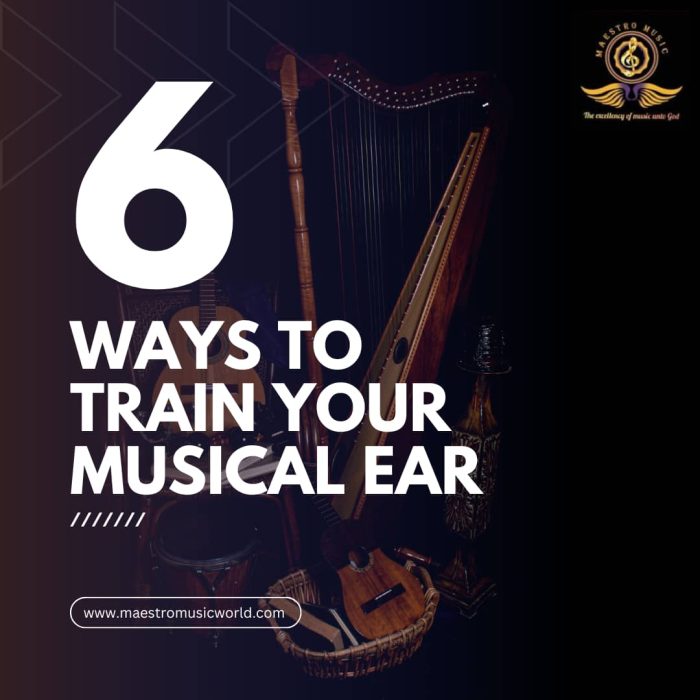
6 WAYS TO TRAIN YOUR MUSICAL EAR
Having a well-developed ear for music is an invaluable skill for any aspiring musician or music lover. Whether you’re a singer, instrumentalist, or simply a passionate listener, honing your musical ear can greatly enhance your musicality and overall enjoyment of music
1- Take Lessons from Qualified Instructors
Taking lessons from a qualified music instructor is essential for developing a better ear for music. An instructor can offer personalized guidance, assess your progress, provide valuable feedback, introduce ear training exercises, help you understand music theory concepts, and give you practical techniques to improve your listening skills.
2- Learn To Play An Instrument
Playing an instrument helps deepen your understanding of music and refine your ear by enabling you to grasp fundamental musical concepts, gain sensitivity to pitch, timing, and dynamics, and develop a strong connection between your ears, fingers, and musical expression through hands-on experience.
3- Embrace Active Listening
Engaging in active listening is essential for developing a better ear for music. This involves focusing on the melody, harmony, rhythm, and instrumentation, training your ears to identify instruments and their roles, and paying attention to phrasing, dynamics, and articulation. Consistent practice of active listening enhances your ability to analyze and appreciate the nuances of music.
4- Harmonize With Others
Singing or playing in harmony involves attentive listening and blending your voice or instrument with others. Joining a choir, ensemble, or band provides opportunities to practice harmonizing with fellow musicians, focusing on pitches, intervals, and timing. This collaborative experience enhances your ear for music and your musical communication and ensemble skills.
5- Explore Different Genres and Styles
Explore different genres and styles of music to expand your musical horizons. Each genre offers unique characteristics, rhythms, melodies, and instrumentation. Listening to various genres introduces you to different musical elements and helps broaden your musical vocabulary.
6- Do Vocal Exercises
Practice singing scales in different keys and intervals to improve your pitch recognition. Start with basic major and minor scales, then move on to more complex scales
Conclusion
Developing a keen ear for music requires dedication, practice, and a genuine love for the art form. By incorporating essential tips into your routine, you can enhance your listening skills. Consistent practice and curiosity are key to deepening your connection to music’s beauty and mastering a refined musical ear.
